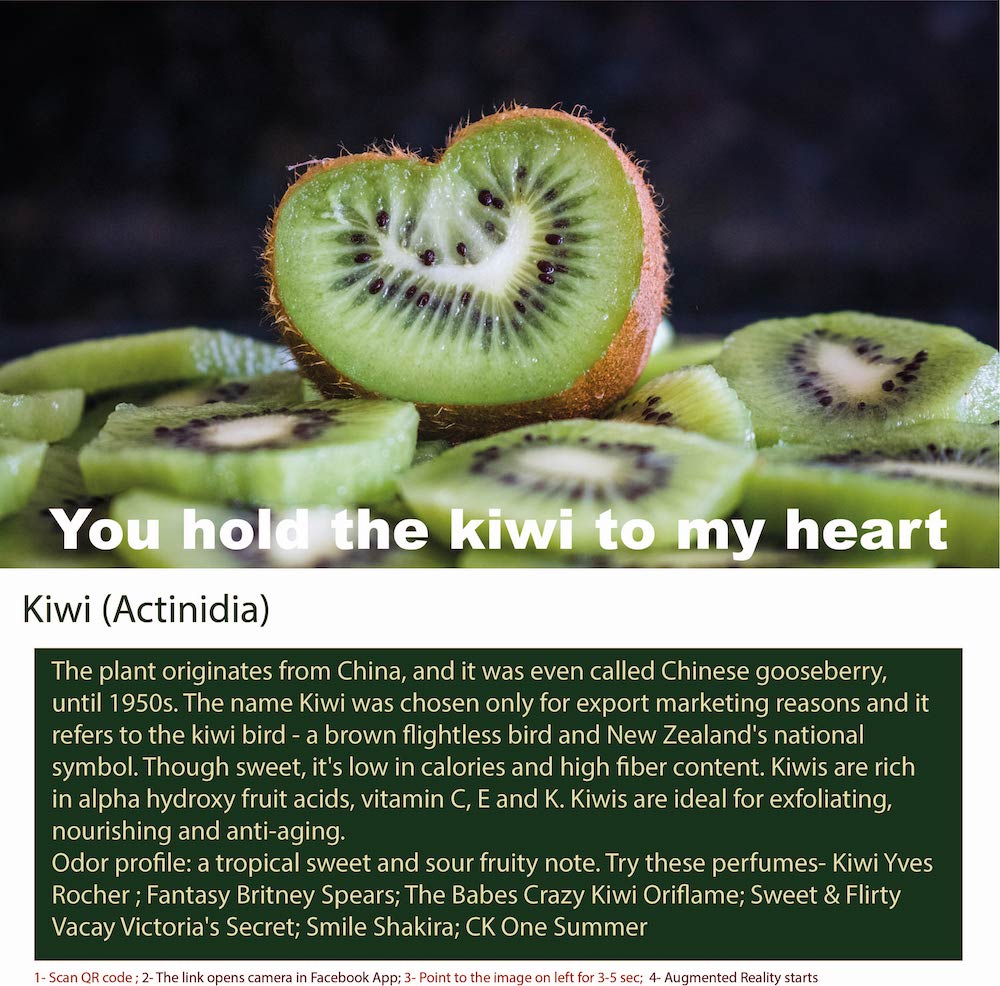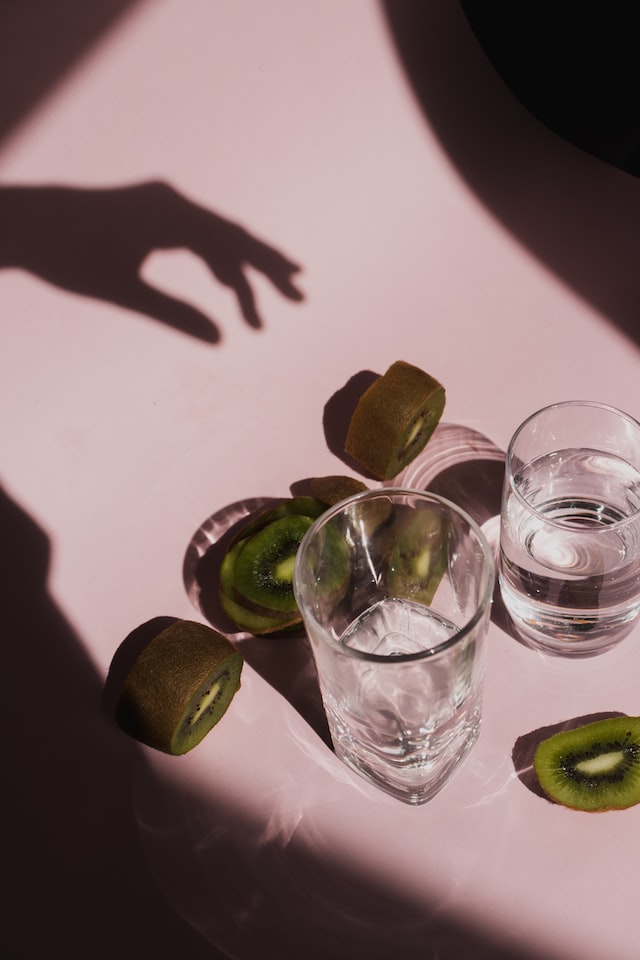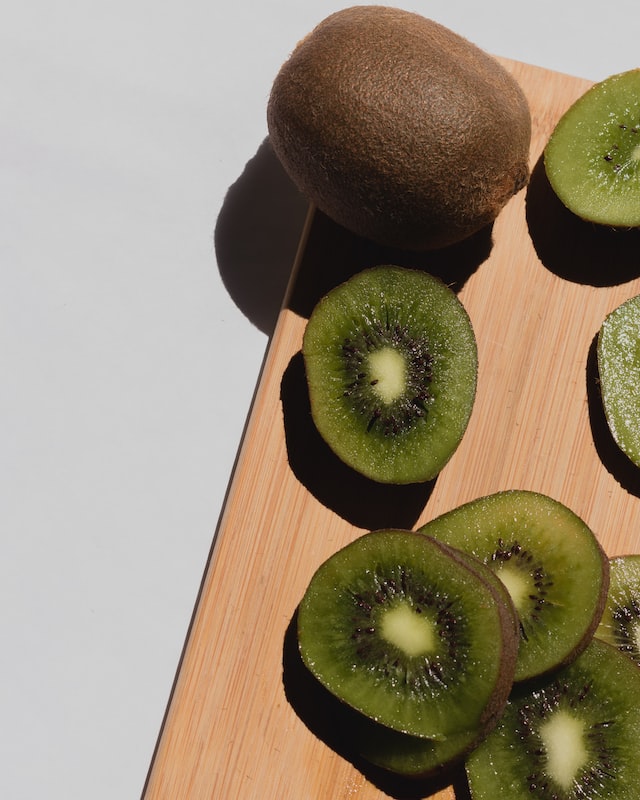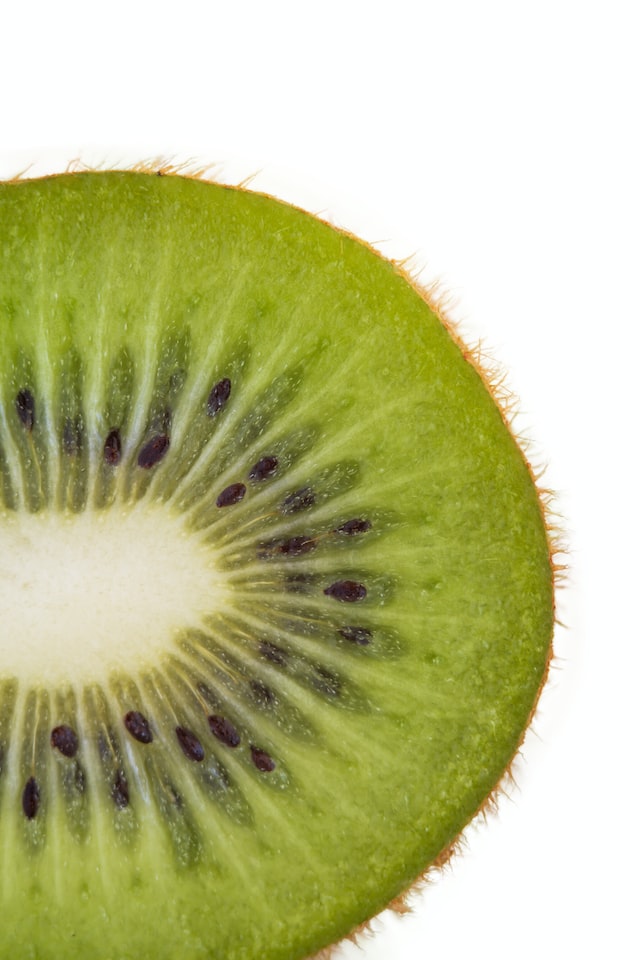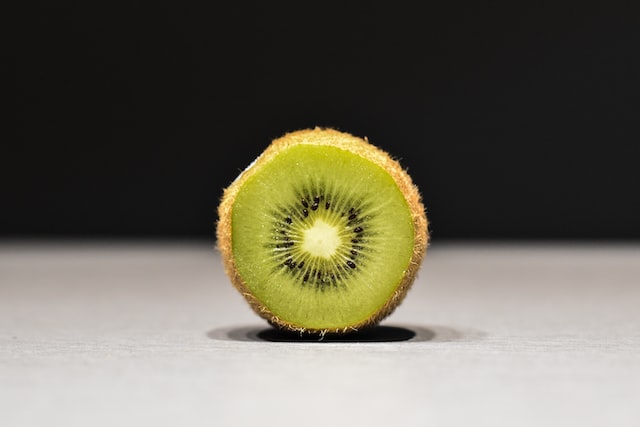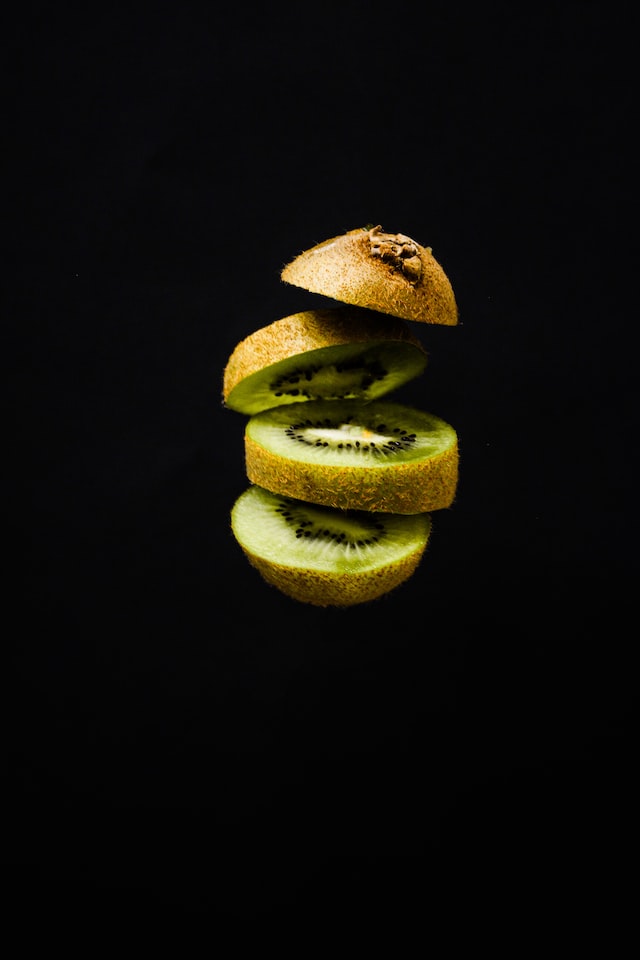Craft Your Own Kiwi Citrus Aromatherapy Blends
The Versatile Kiwi: From Perfumes to Therapeutic Oils, Food to Medicinal System - A Comprehensive Exploration
The kiwi, scientifically known as Actinidia deliciosa, is a small, oval-shaped fruit with a vibrant green flesh and a unique combination of sweetness and tanginess. Originating from China, this exotic fruit has gained global popularity due to its delightful taste and numerous health benefits. Beyond being a delicious fruit, the kiwi has found its way into various industries, including perfumes, therapeutic oils, culinary delights, traditional medicine, and more. In this essay, we will delve into the versatile world of the kiwi, exploring its aromatic presence in perfumes, its therapeutic applications, its culinary uses, its role in traditional medicine, its historical significance, and some fun and crazy facts that make this fruit truly fascinating.
Perfumes and Fragrance: While the kiwi itself is not typically used in perfumery, its fresh and invigorating scent has inspired perfumers to create fragrances reminiscent of its delightful aroma. Perfumers often use a combination of other fruits, such as citrus and tropical fruits, to capture the essence of the kiwi in their compositions. The resulting fragrances evoke feelings of freshness, energy, and vitality, making them popular choices for everyday wear and summer scents.
Therapeutic Oils: Kiwi seed oil, extracted from the seeds of the fruit, is a rich source of essential fatty acids, such as omega-3 and omega-6, as well as vitamins C and E. These components make kiwi seed oil a valuable ingredient in the cosmetic and skincare industry. The oil's high vitamin C content provides antioxidant properties, protecting the skin from environmental damage and promoting collagen production. Additionally, its omega fatty acids help maintain skin moisture and elasticity, making it an excellent choice for nourishing and hydrating skincare products.
In aromatherapy, the invigorating and uplifting aroma of kiwi seed oil is believed to have mood-enhancing properties, reducing stress and promoting a sense of well-being. It is often used in diffusers or diluted in carrier oils for massages to release tension and promote relaxation.
Culinary Uses: The kiwi is a versatile fruit that adds a delightful touch to various culinary creations. Its vibrant green color and refreshing taste make it an appealing addition to fruit salads, smoothies, desserts, and even savory dishes. Kiwi's unique combination of sweetness and tanginess provides a pleasant contrast to other ingredients, enhancing the overall flavor profile of dishes.
Kiwi is also popularly used as a garnish, adding visual appeal to desserts and cocktails. The fruit's distinctive appearance with its small black seeds and green flesh makes it an attractive addition to food presentations.
Medicinal System: Traditional Chinese Medicine (TCM) recognizes kiwi as a fruit with significant health benefits. It is considered a cooling fruit that helps balance the body's internal heat. In TCM, the kiwi is believed to support digestive health, reduce inflammation, and boost the immune system. The fruit's high vitamin C content makes it a natural remedy for colds and flu, as it helps strengthen the body's defenses.
Kiwi's role in traditional medicine highlights its historical significance in Asian cultures, where it has been valued for centuries for its healing properties.
Historical Significance: The kiwi's history traces back to ancient China, where it was first discovered and cultivated. Initially known as the Chinese gooseberry, the fruit gained its current name "kiwi" when it was introduced to New Zealand in the early 20th century. The New Zealanders saw a resemblance between the bird kiwi, a native flightless bird of their land, and the small, brown, and fuzzy fruit.
As the fruit's popularity grew, it spread to other parts of the world, becoming a sought-after fruit due to its unique taste and impressive nutritional content. Today, New Zealand remains one of the significant exporters of kiwi fruits globally.
Fun Crazy Facts:
The kiwi's journey from its origins in China to becoming a global favorite is a testament to its versatile nature and appeal. From its use in perfumes and therapeutic oils to its culinary delights, and its role in traditional medicine, the kiwi has made its mark in various aspects of human life. Its delightful flavor, nutritional richness, and numerous health benefits continue to make it a cherished fruit, while its aromatic inspiration and historical significance add to the allure of this fascinating and versatile fruit.
The kiwi, scientifically known as Actinidia deliciosa, is a small, oval-shaped fruit with a vibrant green flesh and a unique combination of sweetness and tanginess. Originating from China, this exotic fruit has gained global popularity due to its delightful taste and numerous health benefits. Beyond being a delicious fruit, the kiwi has found its way into various industries, including perfumes, therapeutic oils, culinary delights, traditional medicine, and more. In this essay, we will delve into the versatile world of the kiwi, exploring its aromatic presence in perfumes, its therapeutic applications, its culinary uses, its role in traditional medicine, its historical significance, and some fun and crazy facts that make this fruit truly fascinating.
Perfumes and Fragrance: While the kiwi itself is not typically used in perfumery, its fresh and invigorating scent has inspired perfumers to create fragrances reminiscent of its delightful aroma. Perfumers often use a combination of other fruits, such as citrus and tropical fruits, to capture the essence of the kiwi in their compositions. The resulting fragrances evoke feelings of freshness, energy, and vitality, making them popular choices for everyday wear and summer scents.
Therapeutic Oils: Kiwi seed oil, extracted from the seeds of the fruit, is a rich source of essential fatty acids, such as omega-3 and omega-6, as well as vitamins C and E. These components make kiwi seed oil a valuable ingredient in the cosmetic and skincare industry. The oil's high vitamin C content provides antioxidant properties, protecting the skin from environmental damage and promoting collagen production. Additionally, its omega fatty acids help maintain skin moisture and elasticity, making it an excellent choice for nourishing and hydrating skincare products.
In aromatherapy, the invigorating and uplifting aroma of kiwi seed oil is believed to have mood-enhancing properties, reducing stress and promoting a sense of well-being. It is often used in diffusers or diluted in carrier oils for massages to release tension and promote relaxation.
Culinary Uses: The kiwi is a versatile fruit that adds a delightful touch to various culinary creations. Its vibrant green color and refreshing taste make it an appealing addition to fruit salads, smoothies, desserts, and even savory dishes. Kiwi's unique combination of sweetness and tanginess provides a pleasant contrast to other ingredients, enhancing the overall flavor profile of dishes.
Kiwi is also popularly used as a garnish, adding visual appeal to desserts and cocktails. The fruit's distinctive appearance with its small black seeds and green flesh makes it an attractive addition to food presentations.
Medicinal System: Traditional Chinese Medicine (TCM) recognizes kiwi as a fruit with significant health benefits. It is considered a cooling fruit that helps balance the body's internal heat. In TCM, the kiwi is believed to support digestive health, reduce inflammation, and boost the immune system. The fruit's high vitamin C content makes it a natural remedy for colds and flu, as it helps strengthen the body's defenses.
Kiwi's role in traditional medicine highlights its historical significance in Asian cultures, where it has been valued for centuries for its healing properties.
Historical Significance: The kiwi's history traces back to ancient China, where it was first discovered and cultivated. Initially known as the Chinese gooseberry, the fruit gained its current name "kiwi" when it was introduced to New Zealand in the early 20th century. The New Zealanders saw a resemblance between the bird kiwi, a native flightless bird of their land, and the small, brown, and fuzzy fruit.
As the fruit's popularity grew, it spread to other parts of the world, becoming a sought-after fruit due to its unique taste and impressive nutritional content. Today, New Zealand remains one of the significant exporters of kiwi fruits globally.
Fun Crazy Facts:
- The kiwi is not a citrus fruit, despite its tangy flavor. It belongs to the Actinidiaceae family and is related to other fruits like the Chinese gooseberry and the Siberian kiwifruit.
- Kiwi is one of the most nutrient-dense fruits, packing an abundance of vitamins, minerals, and antioxidants. It contains more vitamin C than oranges and is an excellent source of vitamin K, vitamin E, and potassium.
- Kiwi seeds are edible and are a rich source of omega-3 fatty acids, making them a healthy addition to salads and smoothies.
- A single kiwi fruit contains all the vitamin C needed for an adult's daily intake, making it an exceptional immune-boosting fruit.
- Kiwi is known for its enzyme called actinidin, which aids in the digestion of proteins, making it an excellent fruit to include in meat marinades.
The kiwi's journey from its origins in China to becoming a global favorite is a testament to its versatile nature and appeal. From its use in perfumes and therapeutic oils to its culinary delights, and its role in traditional medicine, the kiwi has made its mark in various aspects of human life. Its delightful flavor, nutritional richness, and numerous health benefits continue to make it a cherished fruit, while its aromatic inspiration and historical significance add to the allure of this fascinating and versatile fruit.
To experience augmented reality, please open the Facebook-app using QR code and point to the image below
Elevate Your Scent Crafting with Natural Essential Oils
The kiwi, also known as the Chinese gooseberry, is a small, egg-shaped fruit that is native to China. It is a juicy and sweet fruit that is often used in desserts, smoothies, and salads. Here are some fun facts about kiwi:
- Kiwi is a good source of vitamin C. It contains more vitamin C per ounce than an orange.
- The kiwi is a national symbol of New Zealand, where it is known as the "kiwi fruit."
- Kiwi fruit has a fuzzy brown skin and bright green flesh. It also has small, black edible seeds.
- The kiwi plant is a vine and can grow up to 33 feet long.
- The kiwi fruit is a good source of potassium, vitamin E, and vitamin K.
- Kiwi fruit has a unique taste, it's sweet and slightly tangy, it has a unique combination of flavors, some people describe it as a mix of strawberry, pineapple, and banana.
- Kiwi is a good source of antioxidants, which can help to prevent cell damage and reduce the risk of certain diseases.
- Kiwi is a good source of fiber, which helps to promote healthy digestion.
- Kiwi can be eaten raw, peeled or unpeeled, or cooked in a variety of dishes, such as pies, jams, and sauces.
- In perfumery, kiwi is not a common scent, but it can be used as a fruity note to add a fresh, juicy and slightly tangy quality to a fragrance.
Discover the Freshness of Kiwi Energizing Citrus Scent
Kiwi fruit has a variety of health benefits due to its high nutrient content. Here are some of the therapeutic benefits of kiwi:
- Helps to boost the immune system: Kiwi fruit is high in vitamin C, which is an antioxidant that can help to boost the immune system and protect the body against infections and diseases.
- Promotes healthy digestion: Kiwi is a good source of fiber, which can help to promote healthy digestion by promoting regular bowel movements and preventing constipation.
- Reduces the risk of heart disease: Kiwi fruit is high in potassium, which can help to lower blood pressure and reduce the risk of heart disease.
- Promotes healthy skin: Kiwi fruit is high in vitamin E, which can help to promote healthy skin by protecting the skin from sun damage and reducing the risk of wrinkles.
- May help to prevent certain cancers: Kiwi fruit is high in antioxidants, which may help to prevent certain types of cancer by protecting cells from damage and reducing inflammation in the body.
- May help to prevent asthma: Some research suggests that consuming kiwi fruit may help to reduce the symptoms of asthma and decrease the risk of developing the condition.
- May help to improve sleep: Some studies suggest that consuming kiwi fruit before bedtime may help to improve sleep quality, especially for people with insomnia.
- May help to improve respiratory function: Some studies suggests that consuming kiwi fruit may help to improve respiratory function, which can help to reduce the risk of respiratory infections.
Scentopia Singapore: Your Source for Premium Crafting Oils
Here are some fun facts about kiwi:
- The kiwi is a national symbol of New Zealand, where it is known as the "kiwi fruit."
- Kiwi fruit has a fuzzy brown skin and bright green flesh. It also has small, black edible seeds.
- The kiwi plant is a vine and can grow up to 33 feet long.
- The kiwi fruit is a good source of potassium, vitamin E, and vitamin K.
- Kiwi fruit has a unique taste, it's sweet and slightly tangy, it has a unique combination of flavors, some people describe it as a mix of strawberry, pineapple, and banana.
- Kiwi is a good source of antioxidants, which can help to prevent cell damage and reduce the risk of certain diseases.
- Kiwi is a good source of fiber, which helps to promote healthy digestion.
- Kiwi can be eaten raw, peeled or unpeeled, or cooked in a variety of dishes, such as pies, jams, and sauces.
- In perfumery, kiwi is not a common scent, but it can be used as a fruity note to add a fresh, juicy and slightly tangy quality to a fragrance.
- Kiwi fruit is also known as Chinese gooseberry, it was given the name kiwi because of the resemblance to the brown fuzzy kiwi bird of New Zealand.
Unleash the Power of Kiwi Citrus Aromatherapy
The scent of kiwi fruit is usually described as fresh, sweet, and slightly tangy. It can have a fruity aroma with notes of strawberry, pineapple, and banana. The scent is usually considered to be bright and lively.
In perfumery, kiwi is not a commonly used scent, but it can be used as a fruity note to add a fresh, juicy, and slightly tangy quality to a fragrance. It is often used in combination with other fruity or floral scents to create a unique, playful, and lively scent.
It's worth noting that the scent of kiwi fruit can vary depending on the variety and ripeness of the fruit. Unripe kiwis may have a more muted or grassy aroma, while ripe kiwis will have a stronger, sweeter scent.
In perfumery, kiwi is not a commonly used scent, but it can be used as a fruity note to add a fresh, juicy, and slightly tangy quality to a fragrance. It is often used in combination with other fruity or floral scents to create a unique, playful, and lively scent.
It's worth noting that the scent of kiwi fruit can vary depending on the variety and ripeness of the fruit. Unripe kiwis may have a more muted or grassy aroma, while ripe kiwis will have a stronger, sweeter scent.
Natural Crafting Oil for Energizing Scents
Many perfume brands have used kiwi as a fruity note in their fragrances. Some of the brands that use kiwi as a note in their fragrances are:
- Demeter Fragrance Library - They have a kiwi cologne spray and kiwi lotion that are sold under their "Fruit Fushion" line.
- The Body Shop - They have a line of fruity body mists and perfumes that include a kiwi scent.
- L'Occitane - They have a line of fruity body mists and perfumes that include a kiwi scent
- Jo Malone - They have a cologne called "Wild Bluebell" which includes kiwi as one of the notes.
Join Scentopia, Sentosa's latest tourist attraction wonderful orchid scent crafting, fragrance tour, bridal shower or corporate team building which includes perfume making onsite and offsite, beach activities and more. We also serve primary school learning journey, secondary students and pupil on industrial excursions. Know more about our orchids perfume bar or therapeutic orchid scents and other wellness aromas. Conatct Perfume workshop or book a scent crafting session here.

